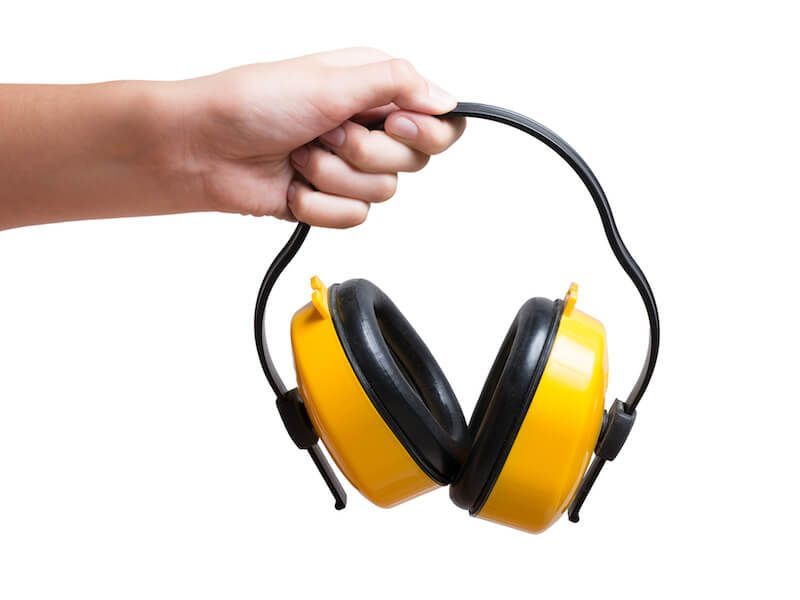Secrets to Preventing Hearing Loss

It’s likely that you’ve already observed that you don’t hear as well as you once did. Usually, we don’t even realize that our choices are negatively impacting our hearing.
Many types of hearing impairment are preventable with several simple lifestyle changes. Let’s look at six unexpected secrets that will help you protect your hearing.
1. Manage Your Blood Pressure
Consistently high blood pressure is not okay. A study found that hearing loss was 52% more likely with people who have above average blood pressure and they are more likely to have other health issues also.
Take steps to decrease your blood pressure and prevent hearing damage. Don’t dismiss high blood pressure or wait to see a doctor. Following your doctor’s orders, managing stress, eating a healthy diet, and getting regular exercise are all parts of blood pressure management.
2. Quit Smoking
There are plenty of reasons to quit smoking, here’s another: Hearing loss is 15% more likely to impact smokers. Even more alarming: Individuals who are frequently exposed to second-hand smoke are 28% more likely to have hearing troubles . Even if you leave the room, smoke hangs around for long periods of time with hazardous repercussions.
If you smoke, protect your hearing and think about quitting. Take actions to decrease your exposure to second-hand smoke if you spend time with a smoker.
3. Regulate Your Diabetes
Diabetes or pre-diabetes affects one in four adults. A pre-diabetic individual is highly likely to get diabetes within 5 years unless they make significant lifestyle changes.
Blood vessels that are injured by high blood sugar don’t effectively carry nutrients. Compared to someone who doesn’t have diabetes, a diabetic person has more than twice the chance of developing hearing loss.
If you have diabetes , protect your hearing by taking the proper steps to manage it. Safeguard your hearing by making lifestyle changes if you are at risk of type 2 diabetes.
4. Lose Some Weight
This isn’t about body image or feeling good about yourself. It’s about your health. As your Body Mass Index (BMI) goes up, so does your risk of hearing loss and other health conditions. The chance of getting hearing loss goes up by 17% for a mildly obese woman with a BMI of 30 to 34. A moderately obese individual has a 25% chance of hearing loss if they have a BMI of 40.
Work to eliminate some of that extra weight. Something as basic as walking for 30 minutes each day can lower your chance of hearing loss and prolong your life .
5. OTC Medicines Shouldn’t be Overused
Certain over-the-counter (OTC) drugs can cause hearing loss. The more frequently these medicines are used over a prolonged period of time , the higher the risk.
Typical over-the-counter medicines that impact hearing include aspirin, NSAIDs (like naproxen, ibuprofen), and acetaminophen. Take these medicines sparingly and talk to your doctor if you’re using them on a regular basis.
If you’re using the recommended dose for the occasional headache, studies indicate you’ll most likely be fine. The risk of hearing loss goes up to 40% for men, however, when these medicines are used on a day-to-day basis.
Always follow your doctor’s advice. But if you’re using these drugs every day to deal with chronic pain or thin your blood, consult your doctor about lifestyle changes you can make to decrease your dependence on OTC drugs.
6. Eat More Broccoli
Broccoli is packed with nutrients and vitamins including C and K and also has lots of iron. Iron is essential to a healthy heart and strong blood circulation . Iron helps your blood carry oxygen and nutrients to cells to keep them healthy and nourished.
For vegetarians or individuals who don’t eat much meat, eating a sufficient amount of plant-based iron is important. The iron found in plants is not as bioavailable as the iron in meat so people in this group are more likely to be deficient in iron.
Pennsylvania State University researchers examined over 300,000 people. The researchers found participants with anemia (severe iron deficiency) were twice as likely to experience sensorineural hearing loss as those without the condition. Age-related permanent hearing loss is what the technical term “sensorineural hearing loss” refers to.
The inner ear has fragile hair cells that detect sounds and interact with the brain to transmit the volume and frequency of those sounds. If poor circulation or an iron deficiency causes these little hairs to die they will never grow back.
Don’t wait to get a hearing exam because you’re never too young. Implement these steps into your life and prevent hearing loss.


